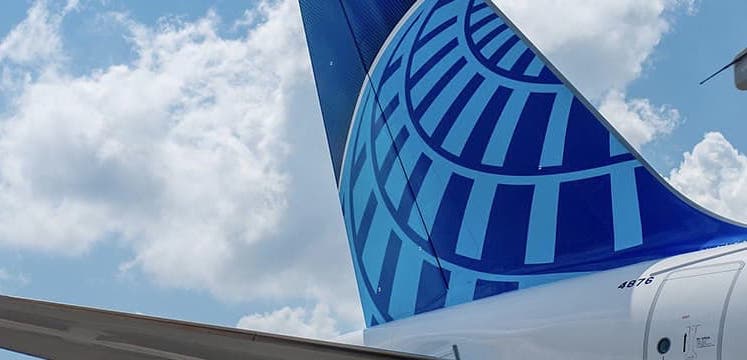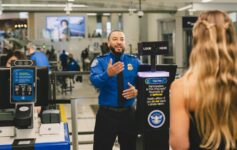
United Airlines will pay $305,000 and reinstate a pilot who identifies as Buddhist after refusing to let him attend an alternative to Alcoholics Anonymous as he battled alcohol addiction.
Buddhist Pilot Will Receive $305,000 From United Airlines In Religious Discrimination Settlement Over Alcoholics Anonymous
The bottom line is very simple, but the case is far from simple. As part of a settlement brokered by the U.S. Equal Employment Opportunity Commission (EEOC), United Airlines will offer $305,000 in back-pay (covering two years of duty) to a pilot who was terminated over his alcohol addiction.
Why was he terminated? When he came forward and declared his alcohol addiction, United Airlines ordered him to attend Alcoholics Anonymous meetings, part of its standard protocol for restoring pilots to service who battle alcohol dependency.
But the pilot refused, citing the Christian overtones of the group. He proposed attending an alternate Buddhist-friendly group Refuge Recovery, but United refused. He was sacked and the legal battle began.
The EEOC eventually found in the pilot’s favor, determining United Airlines violated Title VII of the Civil Rights Act of 1964, which prohibits discrimination based on religion. Under Title VII, employers must make a reasonable accommodation for an employee’s sincerely held religious beliefs, so long as doing so does not impose an undue hardship on the employer’s business. United, the EEOC determined, could not demonstrate such a hardship.
Still, United refused to settle, prompting a lawsuit that was eventually settled in the favor of the pilot.
Publicly addressing the lawsuit, United Airlines only offered a vague statement:
“Regarding the EEOC, safety is our top priority and we have the highest confidence in the HIMS program, considered the gold standard within our industry for the monitoring of substance abuse.”
HIMS refers to Human Intervention Motivational Study and is an occupational substance abuse treatment program, specific to commercial pilots.
Is Alcoholics Anonymous A Christian Organization?
As a person of faith, I embrace the robust protection for religious freedom in the USA. Such protections are designed to protect all faiths and are at the heart of our constitutional system.
The bottom line is that vetting an alternative program to Alcoholics Anonymous is a burden, but unlikely an undue hardship. United’s legal team should have determined that from the outset.
As for whether AA is a Christian organization, I tend to generally say that organizations (or nations) cannot be Christian, only people can. But we have this from AA:
Many groups have changed the explicitly Christian overtones of the original 12 Steps to reflect more secular or agnostic philosophies.
And this too from the AA UK office:
Let’s make no bones about it; the 12 step programme that members follow has its origins in a Christian group. As a consequence you will see God mentioned quite often. Many members believe in a god, and we have members that come from and practice all sorts of religions; but also many are atheist or agnostic, so don’t be put off.
It is likely the pilot could have found a more secular group incorporating the AA approach. But if the Buddhist program he did find incorporated similar measures to help break addiction, there does not appear to be a difference.
Bottom line (and we saw with COVID-19 vaccines too), whether an employer deems religious demands valid or not, it generally must respect them.
CONCLUSION
A United Airlines pilot has been restored with backpay and will now undergo the HIMS program as part of his journey to regain his license. In settling its lawsuit, United did not admit fault, but was reminded that even vague religious overtones can constitute the sort of religious coercion that runs afoul of US federal law.




Even de minimus references to deities or the Christian religion in general can be off putting to secular people and atheists. How would you feel if you had to attend an AA meeting that was full of references to atheism? What if your children had to pledge allegiance to “one nation, under no deity, indivisible . . .”? I am all for people believing what they want, but please remember you have a privilege living in a nation that pays lip service to Christianity. Just remember that it wasn’t long ago that people were protesting the building of a mosque near ground zero. Nobody would have batted an eye if it were a Christian church.
We are not in disagreement over this.
The only term of the settlement mentioned is two years back pay. I hope that the agreement also included two years of additional seniority. There was a similar case in NY many years ago and to include that term the union was joined as a party as it had to sign off on the seniority issue.
“I tend to generally say that organizations (or nations) cannot be Christian, only people can.”
So the Knights of Columbus is not a Christian organization? The Billy Graham Evangelistic Association? The Salvation Army? They’re just organizations that coincidentally happen to have people in them who identify as Christian?
I guess I just don’t see the difference in your distinction.
I see a narrow but important distinction between calling an organization Christian (or Muslim or Jewish) and recognizing that it propagates those values. Perhaps it is not even germane to our discussion, just a pet peeve of mine.
Keep in mind it is not just hinting at God, but full blown acceptance of being under God’s grace. Replace God with Allah or some other deity and see how well that sits with Christians.
AA 12 Steps:
https://www.aa.org/the-twelve-steps
1. We admitted we were powerless over alcohol — that our lives had become unmanageable.
2. Came to believe that a Power greater than ourselves could restore us to sanity.
3. Made a decision to turn our will and our lives over to the care of God as we understood Him.
4. Made a searching and fearless moral inventory of ourselves.
5. Admitted to God, to ourselves, and to another human being the exact nature of our wrongs.
6. Were entirely ready to have God remove all these defects of character.
7. Humbly asked Him to remove our shortcomings.
8. Made a list of all persons we had harmed, and became willing to make amends to them all.
9. Made direct amends to such people wherever possible, except when to do so would injure them or others.
10. Continued to take personal inventory and when we were wrong promptly admitted it.
11. Sought through prayer and meditation to improve our conscious contact with God as we understood Him, praying only for knowledge of His will for us and the power to carry that out.
12. Having had a spiritual awakening as the result of these Steps, we tried to carry this message to alcoholics, and to practice these principles in all our affairs.
Those steps definitely have Christian thought to it. Jewish religion takes a different approach to sin than Christianity does.
I find interesting in such a story is that this pilot chose to fight this battle. What I imagine is a mid career professional facing the loss of his career, with a clear path to salvaging the career, who engages another fight in this time of turmoil. A fight with an uncertain outcome.
I wouldn’t have taken on such a fight when faced with similar circumstances.
I haven’t fully resolved what all of this means in my mind beyond that it likely reflects the differences between myself and this pilot when it comes to the relative value of career, religion, and conflict.